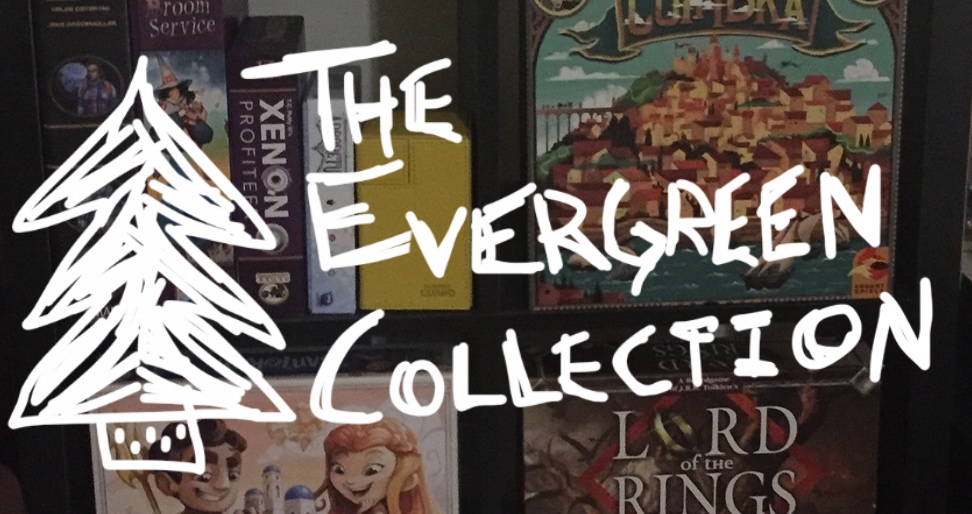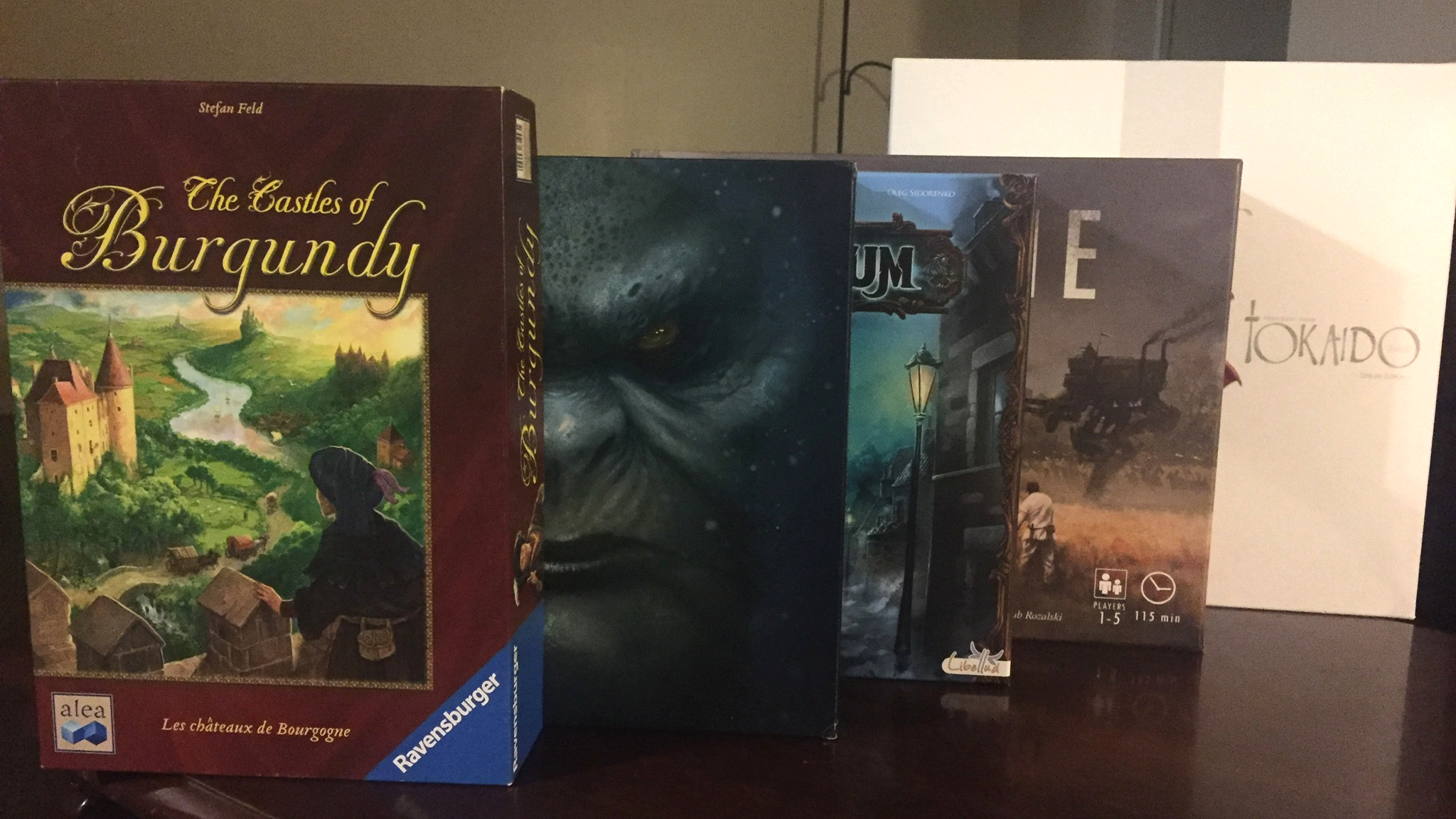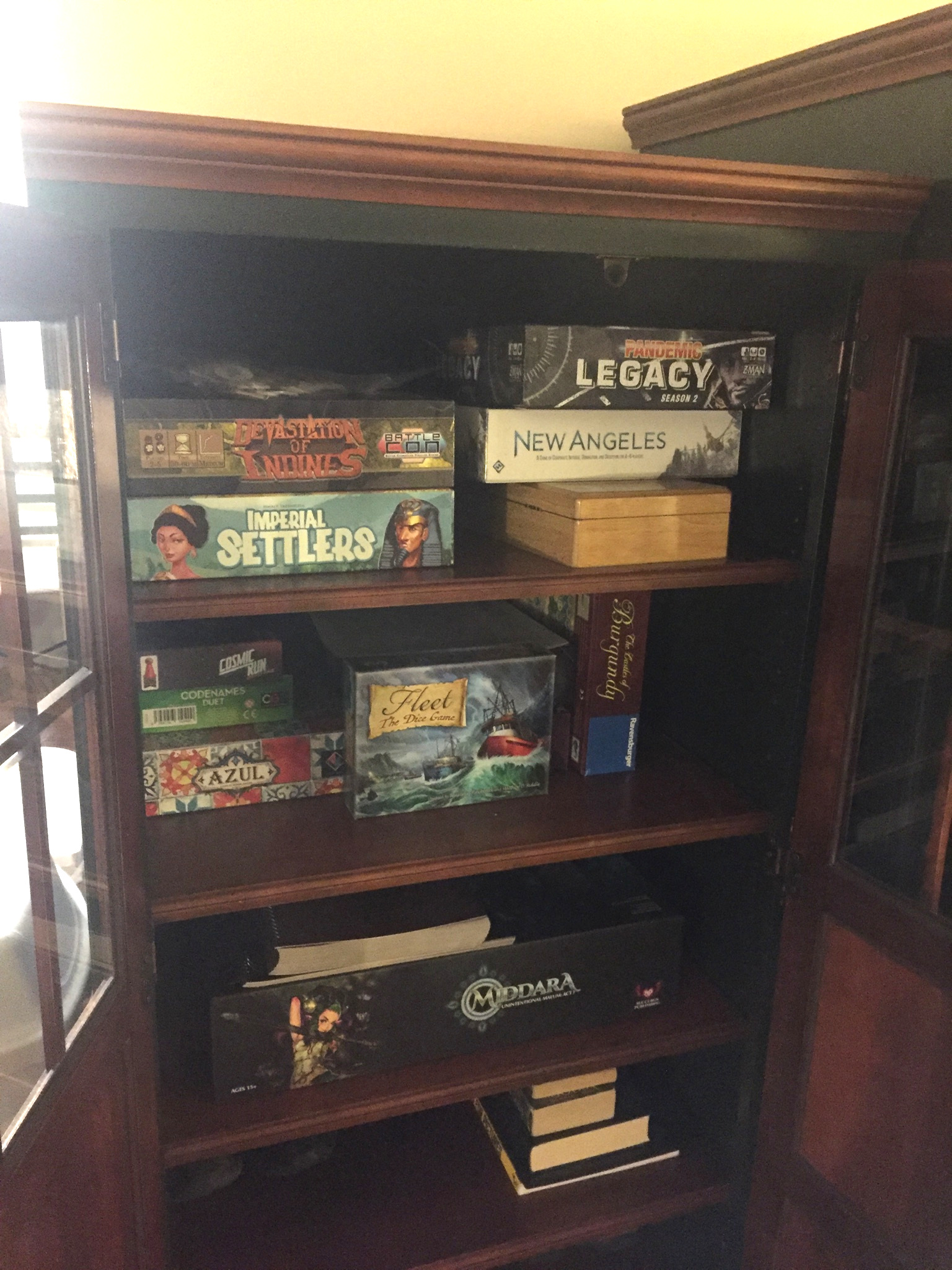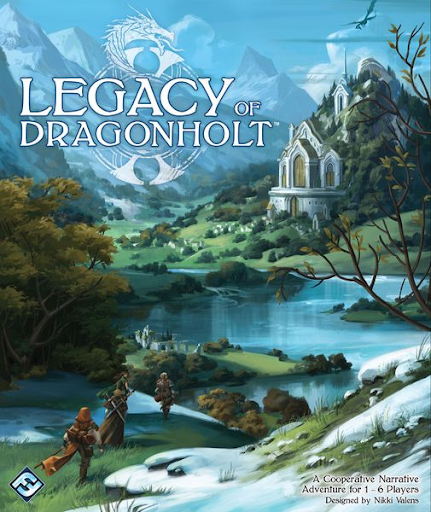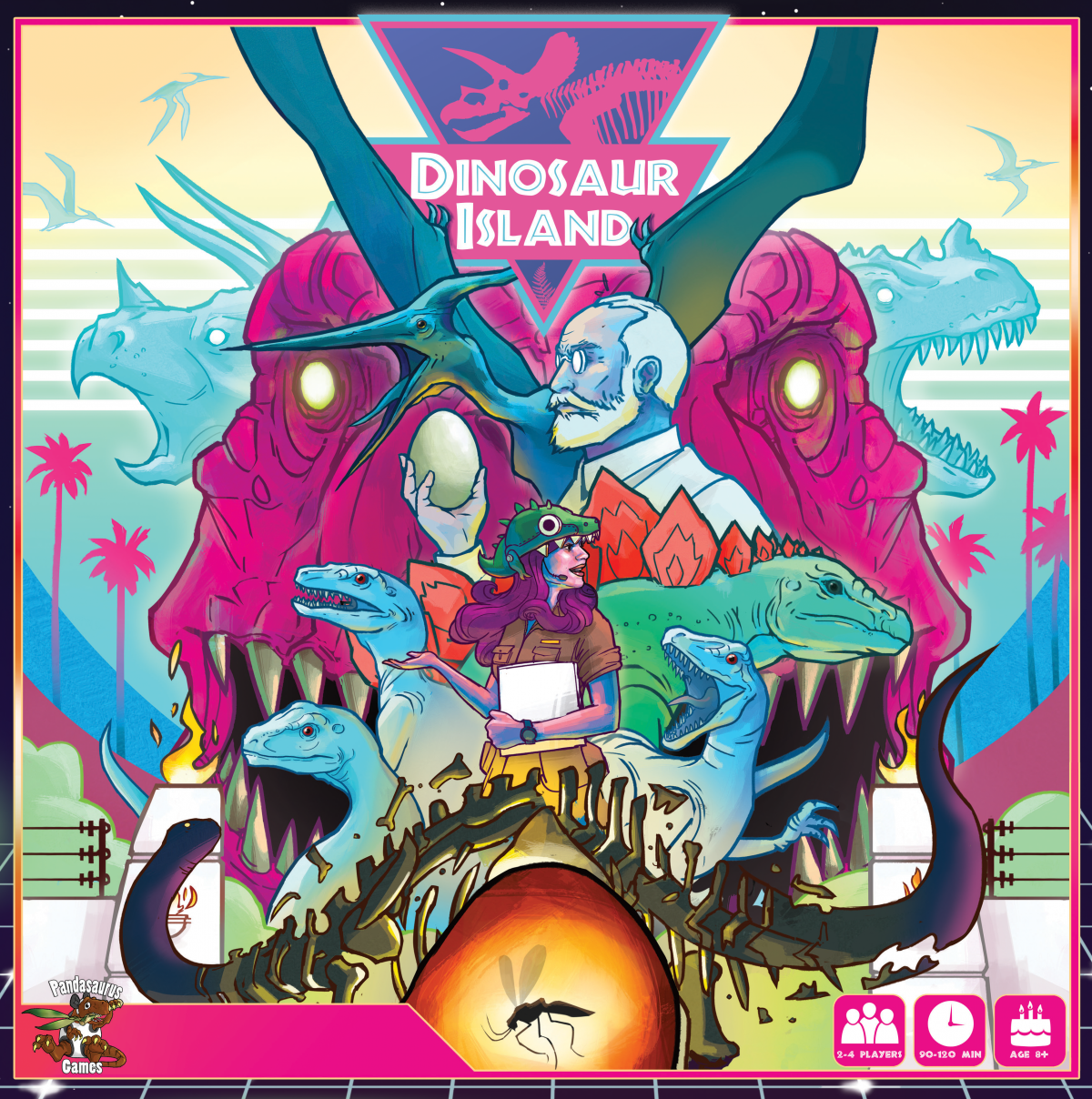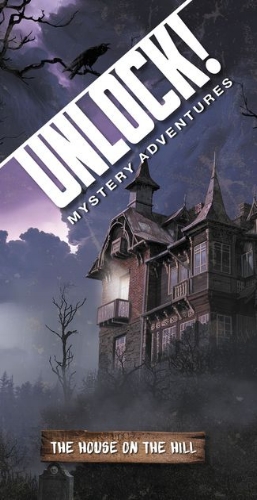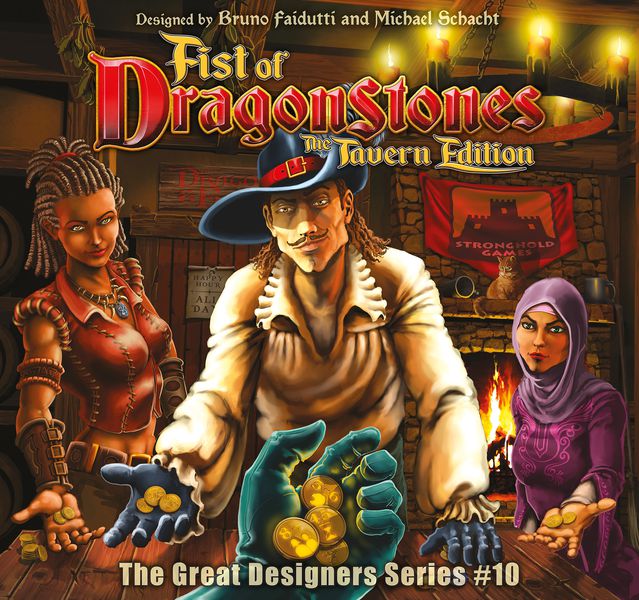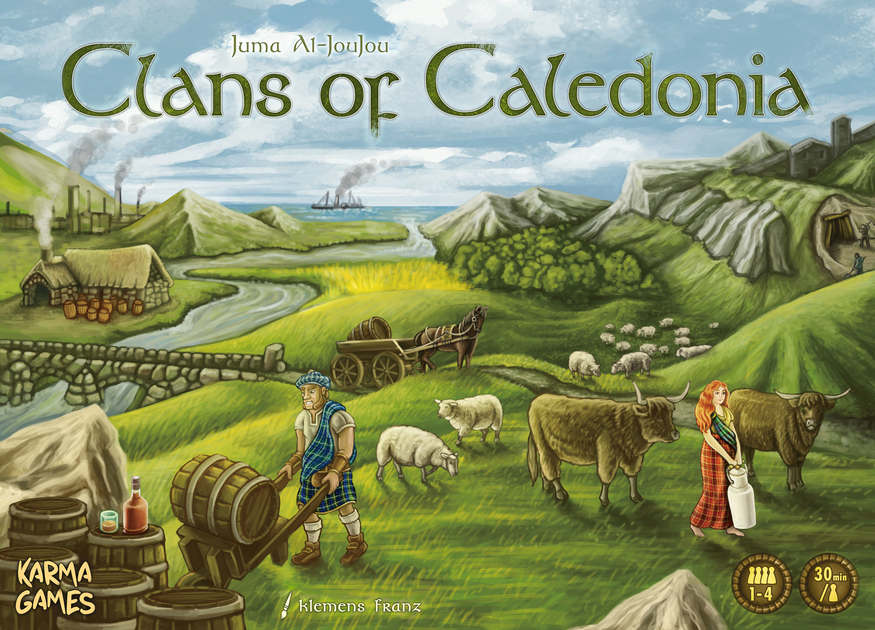If there’s one aspect of my personality that has been most often misunderstood, received the most scrutiny, and drawn the most frustration, it’s that I am, at fault, a regimented individual. Many of the actions or hobbies that I enjoy are dictated by a certain manner or way that I believe I should compose myself and live my life, an attitude that can be misconstrued as an air of obnoxious presumption. I don’t often like… things, at least, no as much as everyone else, and that has often led to arguments over why I can’t just “turn off my brain and enjoy ___” or if there’s anything I actually do like.
And I do. I do enjoy things. I’m just very particular in what I choose to invest my time, money, and energy into, and board games are no exception.
By far my most passionate of hobbies, board gaming has brought me a new lease on life in a way that I cannot begin to explain here. It’s brought me countless friendships, a community of amazing people, work opportunities, love, and a venue to channel my creativity into. Due to this perspective, it’s only fitting of me to want to hunt down and celebrate only the “best” of what the hobby has to offer, that is to say, what I find to be my personal line-up of favorites. In this vein, and due to my anxiety when it comes to clutter and the amount of space board games can take up, I have for many years dedicated myself to a 30-games policy.
As the name suggests, I have, up until this point, maintained that only 30 games can be in my collection at any given point in time, forcing me to trade away and rotate out games that aren’t seeing enough attention, that don’t have enough variety or replayability, or that have simply lost their spark. Most people are astounded by such a proclamation, stating that they couldn’t imagine not having their 100+ games, and while it may not be a system that works for everyone, it’s by far the best method for me.
Moving into 2019, though, I chose to step back and really think about what that mantra really means; why 30 games? Why not 31, or even 21? What does it mean to be in my collection? How do I count games that I haven’t played enough times to be considered “in the collection”? And what about games do I find earns them passage into my collection?
I laid awake in bed night after night, heavily pondering these things, sometimes simply sitting in front of my Kallax and staring, looking for answers amidst the shining box lids. And after much consideration, I think I’ve finally concluded, more or less, what it means to be a part of what I now call The Evergreen Collection. But rather than simply make the statement and go about my business, I intend to document the progression and evolution of my collection to keep myself accountable, and to entertain those who might find this process to be informative and interesting. And who knows, maybe I can inspire others to try some of these methods for themselves and rediscover what makes the hobby so special to them.
The Goal
At its heart, The Evergreen Collection is intended to help me discover those games that will never grow dull for me, titles that I can return to time and again and not worry will become stale. While, in the past, I’ve limited this to 30 games, I don’t intend to do that moving forward… though I highly doubt I will ever find 30+ games that will meet the criteria. As you’ll see below, I’ve only ever found 6 games up until this point that I feel may fit the bill.
That being said, I do intend on limiting the games in my apartment to 30 games at any given point in time; at most, 25 of those games will be in my collection, sitting on my shelf and at least being considered as one day becoming an Evergreen, with the remaining games acting as challengers to my collection and even my perspective as a gamer. I always want to be trying new titles, even if I don’t hold on to them forever. And how else am I supposed to find new games to add to the collection if I’m not trying more and more every day?
The Criteria
There are a few factors that, in my eyes, help to better clarify and understand why I include certain games within The Evergreen Collection over others, aspects that I feel make for better games to maintain within a smaller, more compact collection:
Individuality - Many of the games I tend to be drawn to have some unique aspect about them that makes them stand out from the rest of the pack. Whether it be a theme, mechanic, or narrative, the game needs to have something about it that resonates as being wholly its own thing within the medium.
Variability - A big aspect of having a small collection is getting to replay and become more intimate with those games you keep, and because of this, variety can be an important factor. This can be as simple as having a game that features card counting, providing you with the same puzzle but different pieces each game, or it can be as complex as having new board set-ups, goals, and character powers each time through.
Accessibility - As much as I enjoy growing intimate and invested in complex and involved games, certain games have a knack of outright handing the most experienced player the victory. This isn’t always an issue, but I find that having highly strategic experiences with simple rules tends to be the most rewarding kinds of games for me and my gaming groups.
Length of Play - As much as I love gaming, spending too much time with a single game can make me fidgety, and makes it all the harder to find time to get it to the table. Have too many of these, and a good portion of your collection can’t be played unless you’ve got half a day to kill. There are exceptions, but I usually don’t care for games that last longer than 2 and ½ hours for these reasons.
Fun Factor - Obviously, board games need to be fun for you to want to hold on to them, but it’s important to consider how much fun each title provides you. I’ve played very good games in the past that, when the experience is over, left me feeling hollow and uninvested. It’s important to recognize good games while also acknowledging that you don’t need to own every good game, just the games that are most fun for you to play.
A Collection Under Construction
Before I expound upon what games are currently crowding my Kallax, I feel it’s worth noting that, like anything good in this world, the Evergreen Collection is always changing, growing, shrinking, shifting this way and that. It’s an ever-present thought in the back of my mind every time I sit down with a board game, new or old. Some titles have left my apartment only to return years later when I came to better understand them, to fully appreciate them for what they are. And, much like myself, this collection is young and still working through the many growing pains that come from life.
So while these are the games that happen to be here now, I can’t say for sure how long they’ll remain there. I can simply hope that one day I’ll reach the point where the Evergreens far outweigh those games that are here for a brief vacation.
Note: Games below are listed in no particular order; thus, all titles is a section are considered to be equals in my eyes.
The Evergreens
These are my timeless games, the titles that, for me, never gets old, and will hopefully will remain so. There’s something about them that’s entirely unique, they create memorable stories, and are fun to a fault, engaging the players around the table with straightforward gameplay and involved strategies. There’s enough variety to make each playthrough fairly fresh, encouraging me to return to them time and again, and none of these games are so daunting to teach that they make bringing newcomers on board a chore. At the end of the day, you could refer to these as my favorites, but I look at them more as the pinnacle of my above stated criteria, each an example of a game that transcends the limitations of its genre.
The Castles of Burgundy - A classic through and through, Castles exemplifies the simple impulse I have to operate efficiently; encouraging me to erect the most prolific collection of buildings as quickly as possible. There are a variety of strategies at play as to what buildings to prioritize and how to spread across your player board made all the more enticing by varied board layouts, forcing you to try new ideas each time. And with 10 mini expansions that include co-op and solo modes, you can play this game however you want.
Tokaido: Deluxe Edition - The journey across Tokaido brings about a calm for many, presenting players with an artistically unparalleled venture through unfamiliar roads. The goal? To have the best vacation possible, with all the scenic views and pit stops you can imagine. It’s a game of silliness and self-reflection, a warm title that, along with its expansions, is a simple affair with enough bite to keep the more tactically minded at bay for a time.
Mysterium - One of my first reviews for the Cardboard Herald presented Mysterium as a shallow, awkward co-op game that substituted smart choices with luck-of-the-draw. How times have changed, and my perspectives with it. Perhaps the best asymmetric co-ops I’ve had the pleasure of playing, Mysterium builds on the basis of classics like Dixit and Clue and creates an individual journey through the minds of each player as they try and piece together what cryptic clues are passed their way. What the base game suffers in variety can be fixed by adding the expansions, as well as the cards from any edition of Dixit.
Scythe - If I’m asked what my favorite board game is in a given moment, chances are the answer will be Scythe. Threading interesting yet open-ended alternate history narrative with a system that tasks you with building your nation from muck to mechs, Scythe is everything I look for in a game. Every element presents pros and cons to be considered and used smartly when confronting opponents, knowing the sometimes the costs far outweigh the rewards. In terms of expansions, Invaders From Afar is, in my eyes, essential to maintaining more replayability, and The Wind Gambit provide smart and subtle twisted to the already well-tested structure. While most people swear by Rise of Fenris, I find it to be the least interesting and most easily skippable addition to the game.
Abyss - Who knew that in the murky depths of the sea, a grand civilization of fish people barter over pearls as they plot to take control of an underwater government that may function better than our own? With a simple yet rewarding play loop, gorgeous art, and two well-made, though hard to obtain, expansions, Abyss is an intelligent, fast-moving, and at times funny experience that introduces a number of different lords to collect, each with their own playstyles and effects.
The Saplings
These are the games that show promise, that might one day become Evergreens, but haven’t seen enough table time for me, in good conscious, to declare them as such just yet. Their smart and still brimming with the excitement of newness that can, at times, blind one’s better judgment. Still, these are those titles that have blown me away as of late in a very oversaturated market.
Broom Service - One of the funniest games in my collection, players organize your team of witches and druids to deliver generic potions, but how efficiently they can do this all depends on the risks they must take. If your witches are cowardly, they get you a measly sum of resources but help you on your way. If your witches are brave, however, they can help you make some significant progress… assuming another player doesn’t cancel your action, claiming to be even braver. The art is surprisingly compelling and the theme is reminiscent of a certain Studio Ghibli film, making for my go-to 5-player game.
Arboretum - Puns aside, it just makes sense that this game would be considered to be an Evergreen. The card play is deceptively simple and stunningly smart, every action you take is agonizing in the best ways, and Renegade Games’ updated art does this classic justice. Definitely a game everyone should at least try.
Hanamikoji - A surprising game of wits and deduction, this small-box game of winning the favors of geisha is fast at 15 minutes, yet simultaneously a brain-burner, with players limited to using the same 4 actions only once each. While the game itself isn’t terribly varied, the replayability comes from learning your opponents well enough to read into what cards they’ve secretly set aside, while also considering that 1 card is randomly removed each round. Beautiful, svelte, and intimate, there’s nothing else out there quite like it.
Cryptid - Another fantastic 5-player title, this quiet game of deduction presents players with a puzzle; find the only legal location on the board where the mysterious Cryptid can be nesting. The problem? Every player has only 1 piece of the puzzle. By asking other players whether or not the Cryptid can be at certain spots, you have to figure out what everyone else’s clues are and find the hiding place before anyone else can manage to put the pieces together. And with a variety of set ups both facilitated by cards in the box and an online app, the replayability is surprisingly high, making this a game worth coming back to.
Gaia Project - While having a less interesting theme and art style, this sequel to Terra Mystica is better in every other way; the mechanics are more refined and intuitive, the race abilities more interesting and diverse, and with so many variables at play, this is a title that has a ton of replayability. Perhaps the heaviest game on my shelf, though, Gaia Project doesn’t get played nearly often enough to warrant its inclusion as an Evergreen just yet.
The Buddings
These titles show some potential and are on the verge of being excellent, but something about them just doesn’t sit right with me. I may not have found the best way to play them, or I just struggle to find a reason to play them, but they’re still games worth revisiting and playing, at least now and then.
Keyforge - My most played game of the year thus far, this revolutionary title of card play has dragged me by my throat onto the hype train. It’s easy to get to the table and something I find myself growing invested in as I discover my favorite decks to play with. But with a lingering concern of how long this game will last, knowing Fantasy Flight’s tendency to toss great card games by the wayside (*cough* Netrunner *cough*), I worry that, once the dust settles, Keyforge will go the way of the dodo a few years down the road.
The Grizzled: Armistice Edition - The Grizzled is a thoughtful and downright inspired co-op game that tackles a lot of serious themes and ideas without ever feeling overwhelming or preachy, with gorgeous art and gameplay that is simultaneously depressing and hilarious. The campaign leaves much to be desired, but once I’ve completed my first runthrough, I hope that the original game’s charm plus new mechanics are introduced here will skyrocket this title to bigger and better places.
Santorini - Greek gods have always been a point of excitement and fascination for me, so when you combine that with an intelligently designed abstract game with impressive table presence and replayability and you’ve got my attention. Unfortunately, the time it takes to set-up the game is what holds it back from being played more often, not to mention it being a 2-player game (even if the box says otherwise).
Lord of the Rings: The Confrontation (Deluxe Edition) - Another large 2-player title, this game takes Stratego to new heights, acting as one of the best asymmetric titles I’ve ever had the pleasure of playing, but the same issues that apply to Santorini hamstring this game as well.
Champions of Midgard - Infusing my love of worker placement with the excitement of dice manipulation, Champs’ chunky dice and tense decision-making is unlike anything I’ve played to date, pushing you to press your luck to the brink in hopes of coming out on top. While I have both expansions, The Dark Mountains takes away the tension and makes the game a little too easy at times, and Valhalla, while dealing with some stark issues with the original, adds some complexity to the title that it could have done without.
Wildlands - An interesting take on the dudes-on-a-map genre, this game took me by surprise a few weeks ago, offering a few ways to play, well-made minis, and the promises of expansion after expansion. Analysis paralysis can be a little much for some, and everyone’s first turn can feel a bit samey, but I have hope for this game as the year progresses.
Ethnos - I’ve had something of a love-hate relationship with Ethnos for a while now, having designed some fan-factions for the game and earnestly found the simplicity of play a neat icebreaker for a game night. That being said, set-up is a bit of a chore, and having to shuffle the massive deck of cards 3 times over the course of the 45 minute runtime makes me second-guess pulling this game off my shelf constantly.
Whistle Stop - A brain-burner of a title that improves on the tile-laying genre, this train-totting title will push you to think long and hard on every action you take as you build a machine to get your machines to the end of the train tracks as best you can before the game ends. Unfortunately, the board set-up is one of the most annoying and time consuming yet, and it’s a game that asks players to understand its minutia and strategies before you start playing, lest you fall behind in the first couple of turns. Oh, and piling onto the lead player is a very real thing that the game almost encourages, especially in the last couple of rounds. The more I talk about it, the more I think this game will likely leave my collection before the year is done.
The Transplants
These are those games that are, in my opinion, not truly a part of my collection, though I do own them. Rather than sitting on the shelf, they are relegated to the closet due to not having been played for some time now or needing to prove their worth before being considered for the collection. Rather than go into much detail about them, here’s a list of those that are currently “on-deck” if you will:
Colony
Coimbra
Imperial Settlers with all expansions
Pandemic Legacy: Season 2
Secret Hitler: Deluxe Edition
Telestrations
Cyclades with various expansions
Codenames: Duet
Xenon Profiteer
Azul
Vast: The Crystal Caverns with all expansions
Between 2 Castles of Mad King Ludwig
30 Games… For Now
So yes, my collection, technically, sits at 30 games, though I’m positive this will change as the year goes on. Looking over the stats I’ve been logging for the year this far, I see some interesting trends occuring in my gaming attitudes already, making me excited for what’s to come.
Moving forward, I intend to publish an update at the end of each month, talking about my gaming trends for the month (ie what I played the most, the weirdest title I played, etc.) as well as how my personal collection shifted and why. If any notable switch-outs do occur, I plan on writing reviews on those titles talking about the logic behind my decisions.
If you have any thoughts/recommendations for me regarding this moving forward, feel free to leave me your thoughts below. I know that my collection maintenance isn’t for everyone, nor the titles I keep, and it’s always refreshing to hear different perspectives and thoughts on the topic.
Interested in these games? We’ve reviewed many, which you can check out in the scroll below or find in our archive.
Last 30 Written Reviews:

